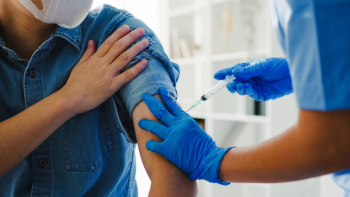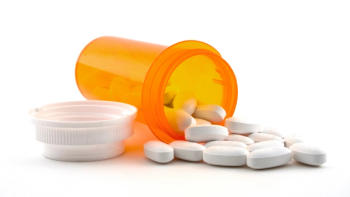
A Passion for Access: Banks Bourne, Tanner Pharma Group
Banks Bourne of Tanner Pharma Group talks about the organization's role in delivering access initiatives for products not commercially available in many parts of the world.
Pharmaceutical companies continue to find it challenging to deliver critical treatments to underserved patients in unlicensed or non-commercial markets. Historically, these companies distributed via their international subsidiaries or out-license partners for commercialization in secondary commercial markets, but little was done to reach tertiary or unlicensed markets. Named Patient Programs, including “compassionate use” programs, have emerged to enable individual patient access to medicines in countries where they are not commercially available. For these programs to be a success, country-specific regulations, complicated supply chains, and healthcare provider communication must all be handled flawlessly. Pharmaceutical Executive spoke with Banks Bourne, Founder and Chairman of Tanner Pharma Group-which provides commercialization, named patient, and specialized procurement solutions to patients and partners in more than 120 countries around the world-about his role in delivering access initiatives for products not commercially available in many parts of the world.
PharmExec: What inspired you to establish Tanner Pharma Group?
Banks Bourne:
Through my investment in the late 90s in King Pharmaceuticals, now owned by Pfizer, I saw their pioneering concept of purchasing mature brands from big pharma that needed attention and/or life cycle capital. My experience with King showed me the potential of licensing or acquiring pharmaceuticals for commercialization in markets outside the US, and how this could change the lives of patients who don’t have access to much-needed medications. Though Tanner began by providing outsourced solutions to pharma companies enabling them to enter new markets commercially, we have expanded to deliver access initiatives for products not commercially available in many parts of the world. Since 2005 we’ve been leveraging named patient supply channels to enable patients to obtain access to pharmaceutical products that would otherwise not be available in their country. Part of our overall strategy has also focused on global expansion of our footprint including Brazil in 2012, the UK in 2015, Switzerland in 2016 and Ireland in 2019. We will likely be looking at expansion into Asia in the coming years. We have structured our programs to offer a comprehensive global commercial strategy, knowing that some countries meet a threshold for marketing authorization and full commercialization, while other countries would benefit from named patient access – including either proactive awareness building or, at the very least, urgent fulfillment of on-demand inquiries.
To what extent are you providing access programs for patients in emerging countries?
Some of our access solutions target emerging economies, where products will likely never be available commercially, and where we can use the named patient supply channels to import medicines into those markets on a donation basis. We partner with ministries of health, hospitals, key opinion leaders, local importers, and non-profit organizations to deliver products to those markets. With emerging markets, and even for more developed markets, we are seeing a significant spike in demand for new innovative medicines. Patients, especially in the rare disease space, know what is in development for their disease, and are asking their physicians for access to medicines that may never be available commercially where they live or that may be unaffordable. Most of our access solutions require providing controlled access, and that means clinicians are provided with adequate education and only patients meeting eligibility criteria determined by the pharma company get access to the medicine. We can also provide approved medical information as requested by healthcare providers, build awareness of the availability of the product, and distribute the product to hospitals for immediate treatment.
Can you share some examples of these programs?
Each of our programs is unique as we solve problems for both our biopharma industry partners as well as physicians and patients. For example, we have a global Named Patient Program where the company has a specialty oncology product with marketing authorization only in the US. Tanner provides access to their medication in all ex-US markets around the world on a charge-for basis. We respond to requests coming from these countries and are able to fulfill the need of our pharma partner by helping them better control their supply chain, and ultimately the need of patients who would otherwise not have this type of access. In terms of donation programs, we are incredibly proud of our work with The Max Foundation, a non-governmental organization (NGO) with a full range of programs serving people living with cancer around the world. Before we knew about The Max Foundation and what they did, we had received requests from them to purchase and donate product that they could not get donated from pharmaceutical companies. Every time they called, we said yes. Eventually we said, “Hey, we need to learn more about The Max Foundation.” We found out that we had a lot in common – we are both “mission driven” and we share a passion for delivering medicine to patients in need. Upon seeing this alignment, the first thing we did was offer to donate our services for quality, regulatory and logistics for some of the programs they run. After we donated our services to The Max Foundation, they told us they were interested in partnering with us for a very large program they were working on with a major pharmaceutical company. They needed a turn-key solution to accept donations of medications and deliver them directly to the patient’s healthcare provider. The programs we run with The Max Foundation now deliver donated medicines to more than 30,000 patients, most with a chronic form of leukemia, in 75 emerging economies. In 2018, Rob Keel, Director of Tanner’s Managed Access Programs, and I made the journey to Uganda to help bridge the “last mile” of treatment access for cancer patients. The last mile refers to the unseen efforts of patients and caregivers to make treatment truly accessible. The fundraising and trip were meant to echo the journey cancer survivors take, sometimes walking many miles, to get the treatment, care, and support they need. While in Uganda, we had the opportunity to meet with patients, partners, and doctors to discuss local needs, advocacy techniques, and the future of treatment access. Seeing hundreds of people camped outside the oncology centers while family members were inside receiving chemo treatment was hard to take, but patients were thrilled to even have the opportunity to get treated. While touring one of the oncology facilities with an oncologist, who could have easily stayed in the U.S. to earn significantly more money and use state-of-the-art treatment protocols, I asked him why he came back. He said it was his duty to the country – that comment, and his dedication, have stuck with me ever since we left Uganda. We believe everyone should be able to receive life-saving medicines regardless of their location, financial means, or the country where they were born. Another program that comes to mind is one focused on rare diseases. We work with a pharma company that intends to sponsor a donation program in low-income countries for a very expensive treatment for pediatric cancer that requires specialized physician training and administration in an advanced hospital setting. Tanner has been helping the company with the design of the program that includes identifying and certifying hospital facilities capable of administering the treatment, training treating physicians, and delivering the medicine to the hospital.
What are some of the challenges presented by emerging markets?
Many patients, physicians, hospitals and pharmacies don’t even know the pathways they can leverage to get access to medicines from other markets. Another challenge can be supply chain control and delivery through to the last mile; this challenge is amplified for patients in remote locations and with cold-chain products. We have detailed quality procedures to closely monitor product integrity throughout the supply chain and we have the means to be able to deliver to just about any country in the world. To minimize risk and ensure supply chain control, we deliver every product using current EU good distribution practice (GDP) guidelines, which describe the minimum standards that a distributor must meet to ensure the quality and integrity of medicines is maintained throughout the supply chain. We look at the entire supply chain, from manufacturing through to the patient. These programs don’t work if delivery ends at a customs warehouse or the port in the destination country. We work with local partners in every market to ensure that, even after our product passes through customs, it is still delivered with the same quality and care that it received on the manufacturing line. We’ve developed a global network of partners to help with this logistics piece and we audit the entire supply chain in the countries we serve.
Your company runs a program called TannerCares. What is that?
I am proud to say that philanthropy is part of our DNA – it is how we are wired as an organization. TannerCares is the philanthropic commitment of our company. We allocate a percentage of every revenue dollar that we make to philanthropic giving. We support worthy charities within the healthcare space, the causes of our partners, and local events that mean something to our team members. We have done everything from sponsoring the 20th Anniversary Gala of The Max Foundation to a 5k run in our community that raised money to support gastric health because it had a personal impact on some of our US-based team members. A critical part of our success is that the mission and culture of Tanner Pharma is embodied in each person we have hired over the years. Whether it is through the global programs we develop and manage for our clients or fundraising we do close to home, we all want to play a part in creating a world where patients around the world have access to medication they need.
https://www.tannerpharma.com
Newsletter
Lead with insight with the Pharmaceutical Executive newsletter, featuring strategic analysis, leadership trends, and market intelligence for biopharma decision-makers.




